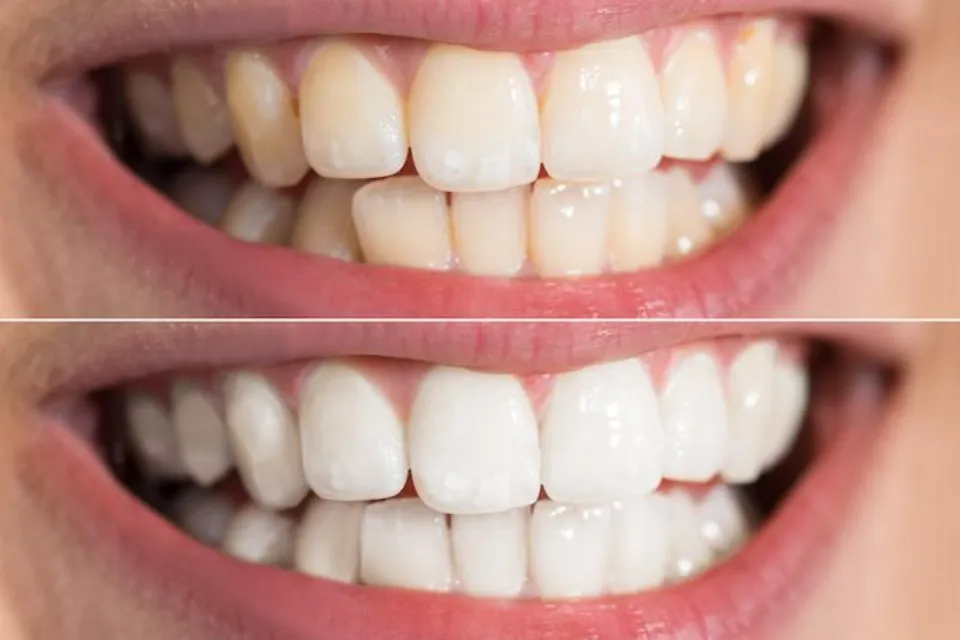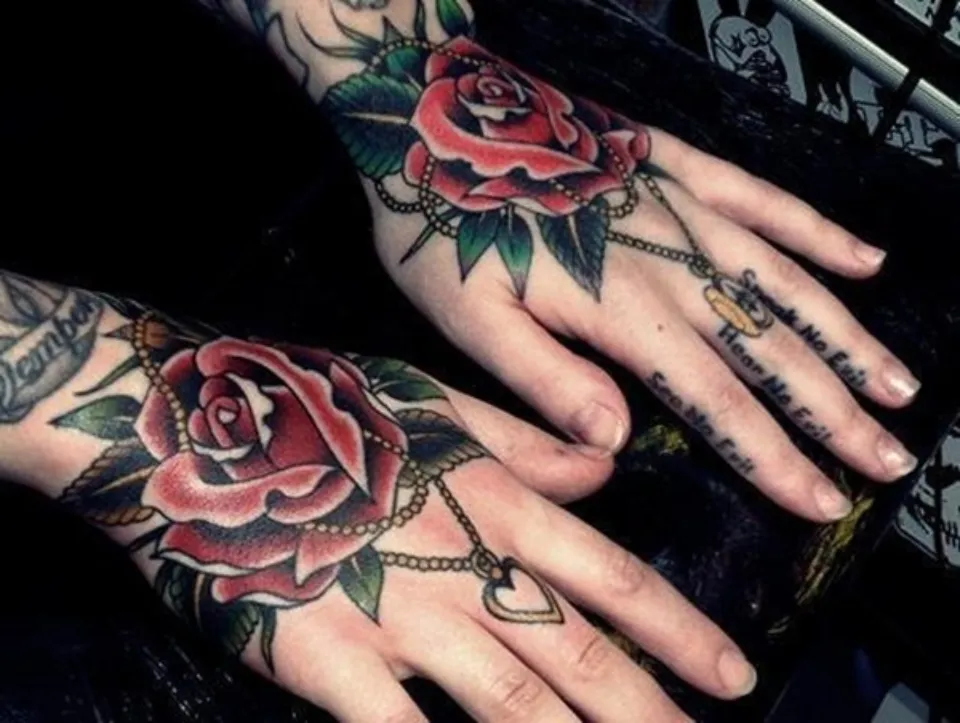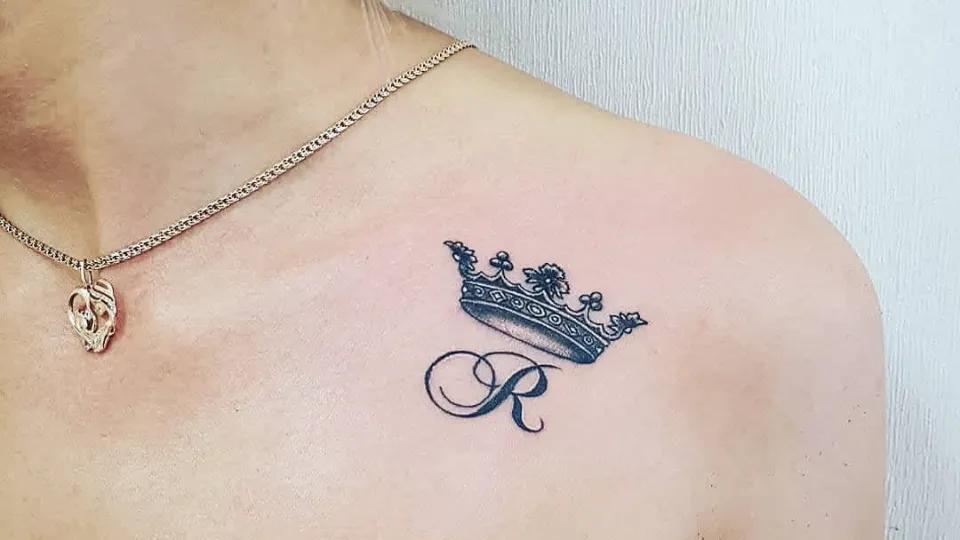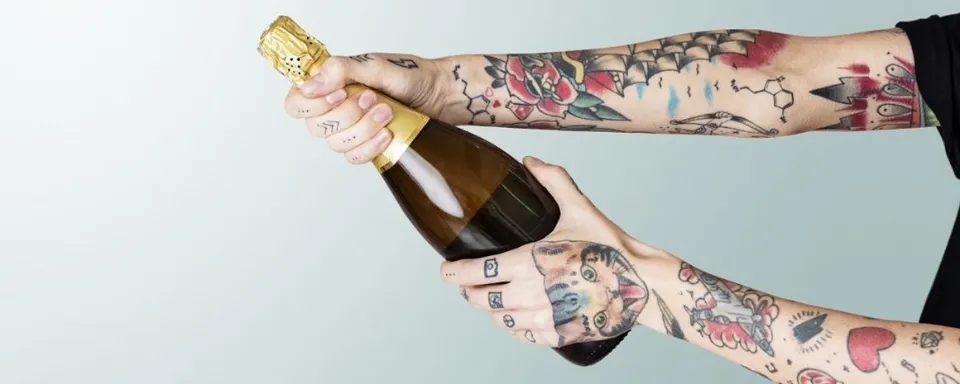Many people may have wondered are yellow teeth stronger than white teeth.
The solution is not as simple as you might imagine. The color of your teeth doesn’t determine their strength. It primarily results from the tooth structure’s resilience to fracture and hardness.
Keep reading and find out more about the relationship between teeth color and teeth strength.
Are Yellow Teeth Stronger Than White Teeth?
The idea that yellow teeth are more durable than white teeth is a widespread one. However, this is not true.
The strength of your teeth is not related to the color of your teeth.
Your dentin, the layer of tissue under your tooth enamel, naturally determines the shade of your teeth.
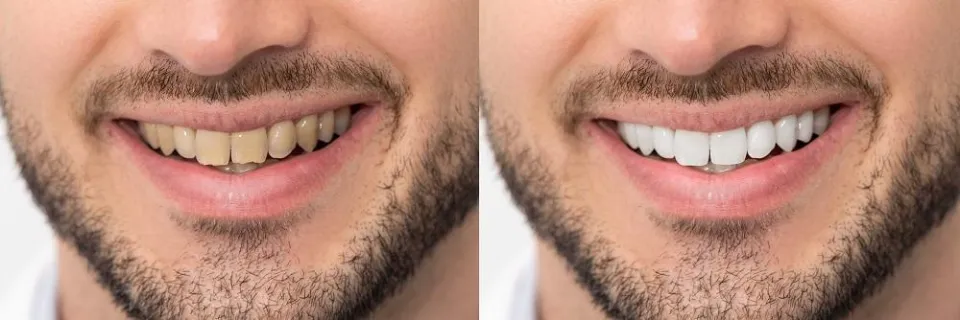
The thickness of the enamel and the general condition of the tooth structure affect the strength of your teeth. Diet, oral health practices, genetics, and dental care practices can all have an impact on how strong your teeth are.
Therefore, the strength of your teeth is unrelated to their color.
Related Reading: Are Teeth Supposed to Be White?
Why Are My Teeth So Yellow?
Now that a few widespread misconceptions about teeth have been dispelled, let’s explore the causes of yellow teeth.
Your Diet
It’s shouldn’t shock you that much that what you eat can affect your teeth color. If your teeth have become yellow, it could be due to foods like these:
- Coffee and tea
- Tomato sauces
- Red wine
- Curries
- Soy sauce
- Berries
- Beetroot
- Balsamic vinegar
Other foods and drinks have acids that erode the tooth enamel but do not cause stains themselves. Your teeth become less white and more vulnerable to stains as a result. Look out for:
- Citrus juices and fruits
- Fizzy drinks (those with rich colors may also cause stains)
- Sugary foods
- Sports drinks
- White wine and other alcohol drinks
- Artificial sweeteners
After consuming these items, it is best to rinse your mouth with water to reduce acid damage.
Poor Oral Hygiene
Too little flossing, rinsing, and brushing to remove plaque and stain-causing substances like coffee and tobacco can cause teeth to discolor.
Grinding Your Teeth
Many people unconsciously engage in it, especially during stressful situations and even while sleeping.
Also known as bruxism, grinding can weaken your tooth enamel, causing it to frequently crack and turn yellow.
Smoking
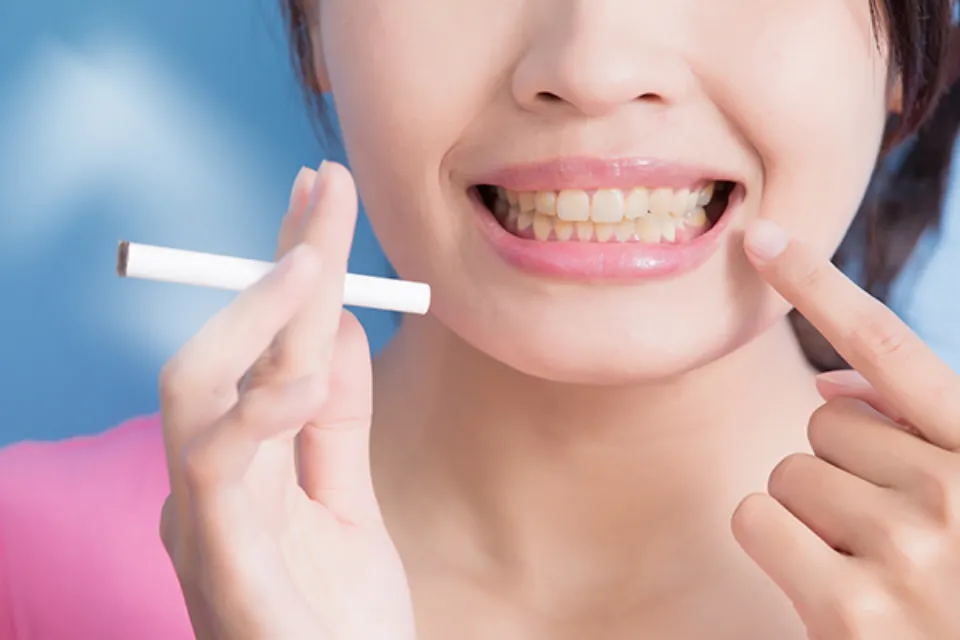
Yellower teeth are very likely in smokers.
Smoking causes teeth to yellow because each puff contains nicotine, tar, and other chemicals. The natural color of the tooth enamel is ruined when these enter the pores of the enamel.
In contrast to non-smokers, who had a discolored tooth rate of 15%, smokers had a discolored tooth rate of 28%, according to a 2005 study. The study also revealed that smokers weren’t typically satisfied with their dental health.
Getting Older
Your teeth may become yellow as you age, which is a natural, irreversible process.
As you age, your enamel dries out from exposure to acids in food and drink as well as from chewing.
Medication Or Illness
Tetracycline and amoxicillin are two examples of antibiotics that can have an impact on tooth color, especially in younger children. Adult allergy medications and high blood pressure can both contribute to this issue. If you are concerned about this, speak with your healthcare provider.
Discoloration of the teeth is a side effect of some diseases, particularly liver diseases. Patients receiving chemotherapy or radiation therapy for cancer may also notice a browning of their teeth.
Genetics
If you’ve always had yellow teeth, your parents could be to blame. The porosity of your enamel and the color of your teeth are both influenced by genetic variations; the more porous your enamel is, the more easily it will be stained.
Excessive Fluoride
Even though fluoride is good for your teeth, too much of it can result in fluorosis, which is a condition where the teeth turn yellow.
Fluoride toothpaste, fluoridated water, and fluoride tablets are all ways to consume too much fluoride.
Dentin
Teeth appear yellow when the enamel thinning causes the dentin below to show through.
Usually hidden behind the yellow you see when you look in the mirror, dentin is a brownish or deep yellow substance that makes up the teeth beneath your enamel.
Dentin is concealed by a layer of thick enamel, but it’s important to remember that enamel doesn’t always protect teeth from surface-level stains. The result is yellowing of the teeth.
Accidents
The enamel can crack and the interior of the tooth can be harmed if your mouth or teeth take a physical blow.
Discoloration may occur as a result of this. However, you require medical assistance if your teeth are also bleeding.
Also Read: How Long Does It Take to Whiten Teeth?
Takeaway: Are Yellow Teeth Stronger Than White Teeth
In conclusion, the color of your teeth is not related to their strength. Teeth yellowing might be an indication of compromised enamel or other dental issues.
The prevention of tooth decay and other dental issues can be aided by upholding good oral hygiene practices and scheduling routine dental visits.
If you are concerned about the color or strength of your teeth, talk to your dentist about your options for improving your dental health and appearance.
Read More: How to Get Rid of White Spot on Teeth?
FAQs
What is the Natural Colour of Teeth?
Enamel is on the surface of every tooth and it has a natural hue of white.
Are Yellow Teeth Permanent?
Adult teeth eventually lose their yellow hue and become brighter and whiter.
Are Whiter Teeth Healthier?
White teeth do not always indicate healthy teeth if they are not accompanied by gum tissue that is in good health.

